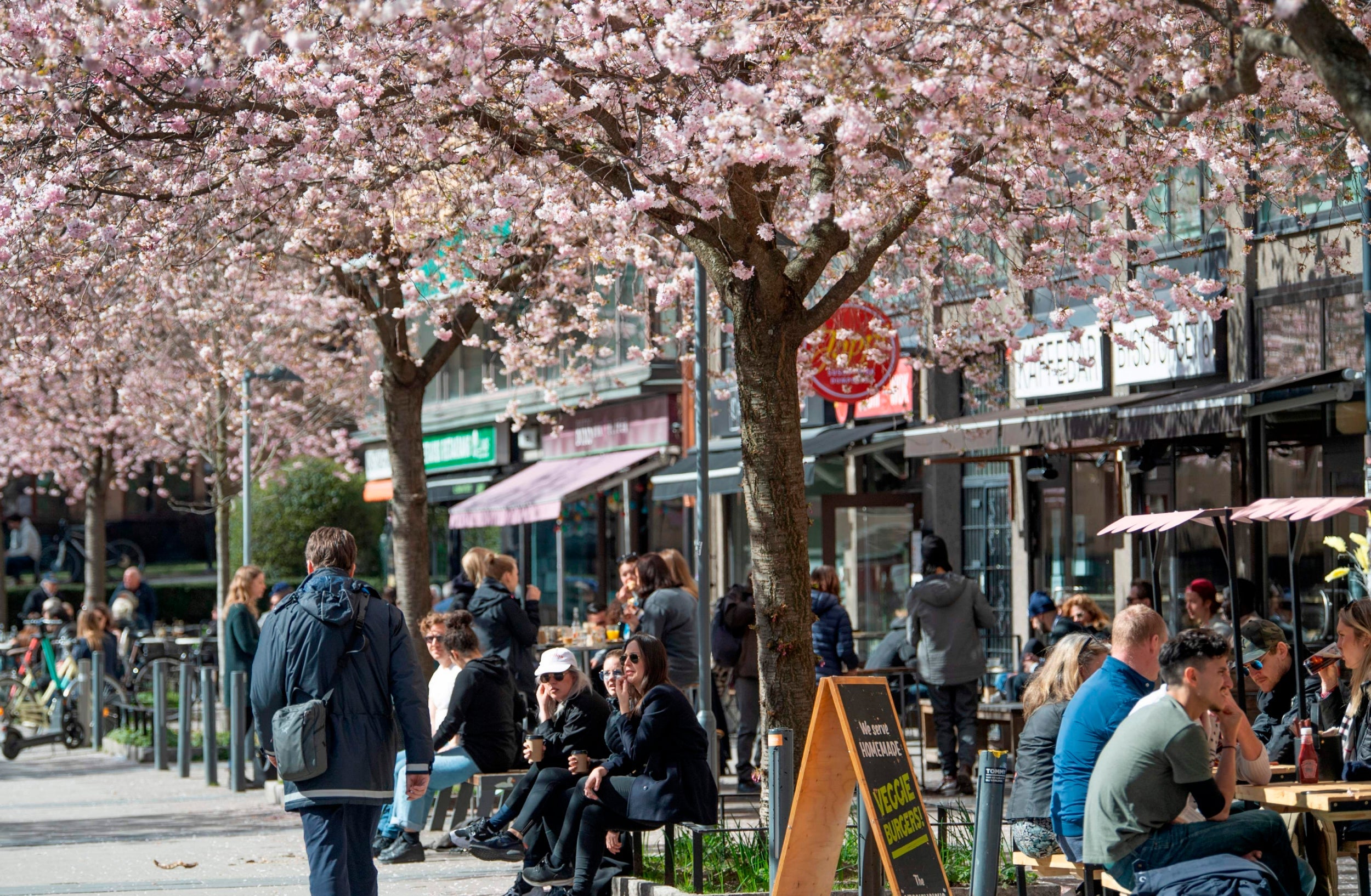‘I’ve never written so many death certificates’: Is Sweden having second thoughts on lockdown?
‘The data says we are heading for catastrophe, we are now part of an experiment without informed consent,’ expert tells Heba Habib, reporting from Stockholm

I’ve never written so many death certificates. I’ve never worked this many hours,” says an exhausted Issa Yacoub, a doctor working in Sodersjukhuset, one of Stockholm’s largest public hospitals.
He and his colleagues are becoming increasingly overwhelmed with the number of patients passing through their doors.
“Let’s just work together, pray together for all the sick... for all the families who can’t meet their sick relatives, for the healthcare staff, who are out fighting hard during this hard time.”
But outside the hospital where Dr Yacoub works it is a very different picture. Sweden, in contrast with most of Europe, has not enforced a lockdown on its citizens. In the balmy Easter weather, people sit and soak in the spring sunshine.
“I’m proud that Sweden is allowing us to take responsibility ourselves instead of being under lockdown,” says Therese Börjlind, a 35 year old accountant, rushing to a family gathering.
Despite the mounting concerns of experts both at home and abroad, Sweden continues what Anders Tegnell, the country’s chief epidemiologist, has called a “low-scale” approach. He insists this “is much more sustainable” in the long run.
Primary schools, shops, restaurants and bars remain open and people are allowed to go out and exercise.
But Sweden’s cases are rising. The country of some 10 million now has more than 10,000 cases and 887 deaths. Its total death toll is higher than that of all the other Nordic countries put together.
The government has said repeatedly that the main cornerstone of their strategy is to protect the elderly. Since the beginning of the crisis, they have been asked to stay home but despite these measures, the virus has spread to one-third of nursing homes in Stockholm, which has resulted in a spike in fatalities.
Prime minister Stefan Lofven recently admitted in an interview with daily Svenska Dagbladet that “Sweden has not succeeded in protecting it’s elderly”. Mr Lofven also warned citizens to prepare for possibly up to “thousands” of deaths.
Dr Carina King, an epidemiologist working at the Karolinska, says: “If Sweden’s strategy is a choice, why view these deaths as inevitable and not preventable?”
“A lot of the strategy is based on cultural norms, the narrative that Swedes will follow the recommendations and trust the authorities. My concern is that with so many unknowns, any strategy that is not aiming to minimise the absolute number of infections is problematic.”
King adds that it is very difficult to assess the science behind Sweden’s strategy since “it has not been transparently presented”.
“There are clear examples where the Swedish guidelines do not fall in line with either WHO recommendations or available empirical evidence. A good example of this is the recommendation that household contacts of suspected Covid-19 cases do not need to quarantine.”
Dr Holger Rootzen, one of the earliest detractors of Sweden’s policy and a professor of mathematical statistics at the University of Chalmers, says that Sweden will soon be overwhelmed unless more action in taken.
Time magazine recently interviewed the head doctor of a hospital in Stockholm who feared the current approach will “probably end in a historical massacre”.
There is now increasing evidence that hospitals, especially in Stockholm which has been the city hit hardest, have had to make difficult decisions regarding which patients will be prioritised in the event of further hospital crowding.
We are now part of an experiment without informed consent
Karolinska hospital has issued guidelines to doctors indicating that patients 80 years old and above would not be admitted into intensive care units, nor those between 60 and 80 with pre-existing conditions.
The prime minister has proposed an emergency law for the rapid closure of schools, public areas and transportation if the situation worsens.
Epidemiologist Tegnell said at a press conference that he is “cautiously optimistic” and “hopeful”, hoping that this is the “end of the beginning” of the crisis for Sweden. He said that when he talked with his counterparts in the UK, “they have not been critical of our methods since we have achieved similar results.”
“In some countries, it has been done with legal means, while in Sweden we have done it more with voluntary measures,” he added.
Dr Cecilia Soderberg Naucler, an expert in microbial pathogenesis at the Karolinska Institute, believes this trust is unfounded and will soon break.
“I’m a scientist, I only trust data and the data says we are heading for catastrophe. We are now part of an experiment without informed consent.”
Subscribe to Independent Premium to bookmark this article
Want to bookmark your favourite articles and stories to read or reference later? Start your Independent Premium subscription today.

Join our commenting forum
Join thought-provoking conversations, follow other Independent readers and see their replies